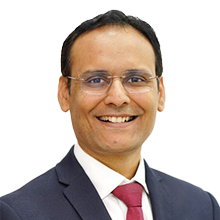Colon cancer, also known as colorectal cancer, develops in the colon or rectum and is often linked to genetic mutations, lifestyle factors, and certain medical conditions, like inflammatory bowel disease. Symptoms may include changes in bowel habits, rectal bleeding, abdominal discomfort, unexplained weight loss, and fatigue. Diagnosis typically involves a combination of screening tests like colonoscopy, imaging studies, and biopsy to confirm the presence of cancer. Treatment options may include surgery, chemotherapy, radiation therapy, targeted therapy, and immunotherapy, depending on the stage and severity of the disease.
Robotic surgery is a minimally invasive surgical technique that utilizes robotic arms and a high-definition camera to perform precise surgical procedures. During the procedure, the surgeon controls the robotic arms from a console, operating tiny instruments inserted through small incisions in the abdomen. The robotic system provides a three-dimensional view of the surgical site, allowing for greater precision and accuracy in removing cancerous tissue while minimizing damage to surrounding healthy tissue. Robotic surgery for colon cancer offers several potential benefits, including shorter hospital stays, faster recovery times, reduced pain and scarring, and improved surgical outcomes compared to traditional open surgery.
Mr. Joseph Kamau from Kenya successfully underwent Robotic Surgery for Colon Cancer at Yashoda Hospitals, Hyderabad, under the supervision of Dr. Sachin Marda, Clinical Director, Senior Oncologist and Robotic Surgeon.

Dr. Sachin Marda
MS (General Surgery), DNB (MNAMS), Fellowship in GI and Laparoscopic Surgery, MRCS (Edinburgh, UK), MCh (Surgical Oncology), DNB (MNAMS), Fellowship in Robotic SurgerySenior Consultant Oncologist & Robotic Surgeon (Cancer Specialist)